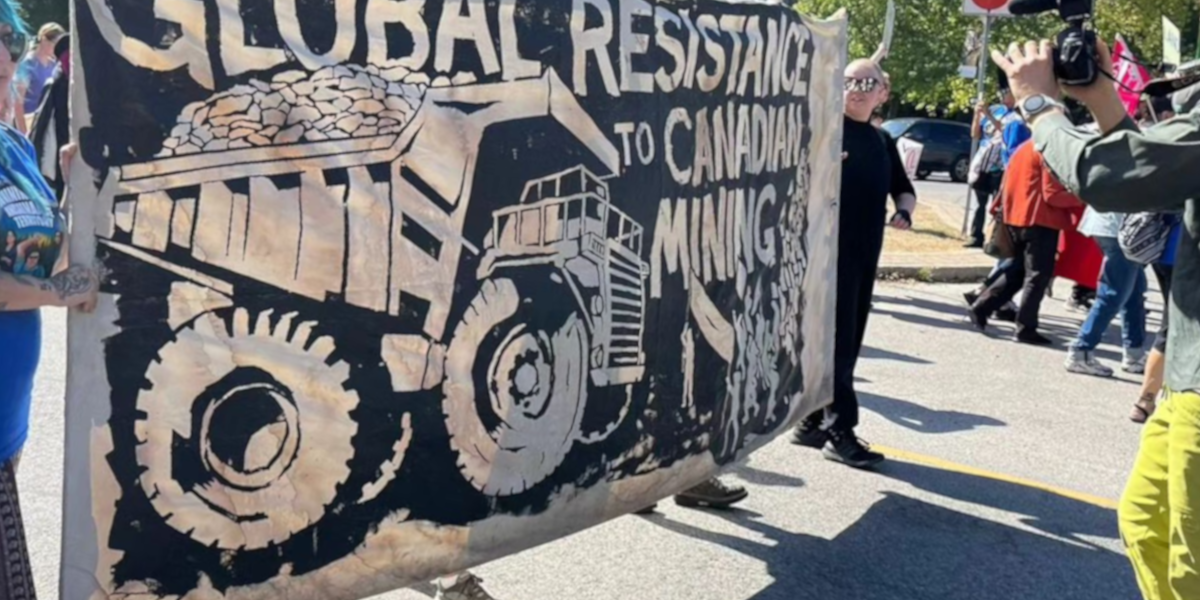Around the world, Canadian mining companies are in disputes with local communities and governments.
Last week, Human Rights Watch released a report detailing a string of abuses at Toronto-based Barrick Gold’s North Mara mine. Since February, at least six Tanzanians have been killed there. Between 2006 and 2023 at least 77 were killed around the mine by police or security hired by the company.
It was also reported this week that the London bullion market will face a hearing in a suit launched by family members of two Tanzanians killed by Barrick security. Additionally, 21 Tanzanians have an ongoing suit against Barrick in the Ontario Superior Court over its complicity in violence at the North Mara mine. This week the company reportedly sent a letter to the United Nations Human Rights Council denying abuses at the North Mara mine.
Despite the violence, Canadian officials have actively supported Barrick’s highly controversial operations in Tanzania.
Last week, Vancouver based Almaden Minerals sued the Mexican government. In what is reportedly the first arbitration brought under the Comprehensive and Progressive Agreement for Trans–Pacific Partnership, the company is seeking $200 million from Mexico.
Recently in Guatemala, a new social democratic government withdrew Bluestone Resources’ permit. The Vancouver company wants to turn its underground mine into an open pit operation, which will contaminate an important water source. Days before rightist president Alejandro Giammattei left office, Bluestone received an “environmental permit amendment” to change the extraction method at its mine, but there were apparently documents missing and forged signatures.
This month, Toronto-based Montauk Metals failed in its bid to extract as much as $177 million from Colombians after challenging a mining ban imposed to protect an important ecosystem in the Andes. The company lost the tribunal decision brought under the Canada-Colombia free trade agreement. (Another Canadian mining company has an outstanding suit against the Colombian government and another one lost a similar case in March.)
In Panama, First Quantum Minerals is pressing the new government to reverse a Supreme Court ruling against its highly controversial mine, which spurred one of the most significant popular uprisings in the country’s history. The Vancouver company has instigated a $10 billion international tribunal suit against Panama.
These are just a few of an astounding number of conflicts at Canadian-run mines. Pick almost any country in the Global South — from Papua New Guinea to Ghana, Ecuador to the Philippines — and you will find a Canadian-run mine that has caused environmental devastation or been the scene of violent confrontations.
Still, Canadian diplomats regularly accompany mining company representatives to meetings with government officials and lobby on their behalf. Resource firms are major beneficiaries of Export Development Canada’s (EDC) services and Canada’s Trade Commissioner Service supports many mining projects. In recent decades, Liberal and Conservative governments have granted hundreds of millions of dollars in international ‘aid’ projects whose real purpose is to support mining. Ottawa has also signed Foreign Investment Promotion and Protection Agreements with dozens of countries largely to give mining firms the ability to sue local governments in investor-friendly international tribunals.
Is this really how most Canadians would choose to spend their tax dollars? Is subsidizing mining companies and providing the “muscle” to intimidate foreign governments for corporations to get their way how ordinary Canadians want Ottawa to act on the international stage? I think not.
It’s long past time for this to stop. We must shake off the moniker of the Ugly Canadian.
Did you like this article? Help us produce more like it by donating $1, $2, or $5. Donate

